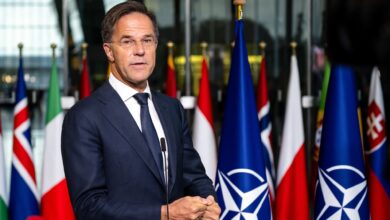
President Donald Trump’s abrupt order to reduce US troops in Afghanistan to 2,500 by mid-January stunned both sides of the aisle. Although his early Christmas surprise thankfully didn’t pan out — Trump said in an October 8 tweet that he wanted all 4,500 troops home by Christmas — this most recent cut destabilizes Afghanistan’s future.
In February 2020, the US and the Taliban signed a peace agreement that was shaky at best. In sidelining the Afghan government, Washington negotiated directly with the Taliban, promising a full withdrawal in exchange for counterterrorism guarantees and genuine intra-Afghan negotiations.
Nine months later and with intra-Afghan negotiations just off the ground, the Taliban still haven’t lived up to their end of the deal. Despite this, the US is accelerating its withdrawal.
We should have the small remaining number of our BRAVE Men and Women serving in Afghanistan home by Christmas!
— Donald J. Trump (@realDonaldTrump) October 7, 2020
If the US is to give the negotiations and the Afghan government a fighting chance, its troop drawdowns need to be conditions-based to hold the Taliban to their word.
Ties With Al-Qaeda
A hasty withdrawal puts political expediency above national security. The peace deal required assurances from the Taliban to break ties with al-Qaeda, but they have done nothing of the sort. Their relationship has continued, and a May UN report even indicated that al-Qaeda is “quietly gaining strength in Afghanistan while continuing to operate with the Taliban under their protection.”
Al-Qaeda currently has training camps in eastern Afghanistan and roughly 400 to 600 operatives active across 12 Afghan provinces.
A hasty withdrawal rewards the Taliban for conditions they have not met and leaves al-Qaeda in a position ripe to reap the benefits.
NATO
The drawdown also leaves NATO allies high and dry. NATO currently has fewer than 12,000 troops in the country, primarily to train and advise government forces. The 30-nation alliance remains heavily reliant on American transport, logistics, and other assistance.
NATO’s Secretary General Jens Stoltenberg gave an uncharacteristically frank warning that the price for leaving “could be very high,” worrying that Afghanistan could once again become a haven for international terrorist groups. “We went into Afghanistan together. And when the time is right, we should leave together in a coordinated and orderly way,” he said.
Undermining Peace Talks
Trump’s accelerated withdrawal undermines the very peace talks he touts. As the Taliban continues its assault on Kabul and sustains an offensive in southern Helmand province, what incentives do they have to stop?
Before being fired over Twitter on November 9, former defense secretary Mark Esper seemed to have said as much in a classified memo to the White House, citing apprehension about undercutting negotiations between the Afghan government and the Taliban.

As long as the US troop exit plan remains non-conditional, the Taliban will lack incentive to negotiate with the Afghan government. A lasting peace agreement will be far off.
Leaving for Good
Trump was correct when he said that “everyone is tired of war.” The nearly 20-year conflict has killed over 2,300 American soldiers, 157,000 people (including 43,000 civilians) in Afghanistan, and cost US taxpayers hundreds of billions of dollars. No one wants to stay in Afghanistan. But the only thing worse than staying is having to come back. We learned this lesson in Iraq in 2011. We don’t want another lesson in Afghanistan.
In his latest bid to end the “endless wars,” Trump seems to forget that the wars can continue even if the US is no longer a part of them. A swift withdrawal without regard for conditions or commitments gives the Taliban the upper hand and puts the government and people of Afghanistan at risk.
We want to leave Afghanistan, but we have to do it responsibly. We have to do it with an eye toward the future so that this time when we leave, it will be for good.
 Ryan Salzman is a master’s degree candidate in Security Policy Studies at George Washington University’s Elliott School International Affairs where he focuses topics in international security, counterterrorism, and US foreign policy.
Ryan Salzman is a master’s degree candidate in Security Policy Studies at George Washington University’s Elliott School International Affairs where he focuses topics in international security, counterterrorism, and US foreign policy.
Disclaimer: The views and opinions expressed here are those of the author and do not necessarily reflect the editorial position of The Defense Post.
The Defense Post aims to publish a wide range of high-quality opinion and analysis from a diverse array of people – do you want to send us yours? Click here to submit an op-ed.











